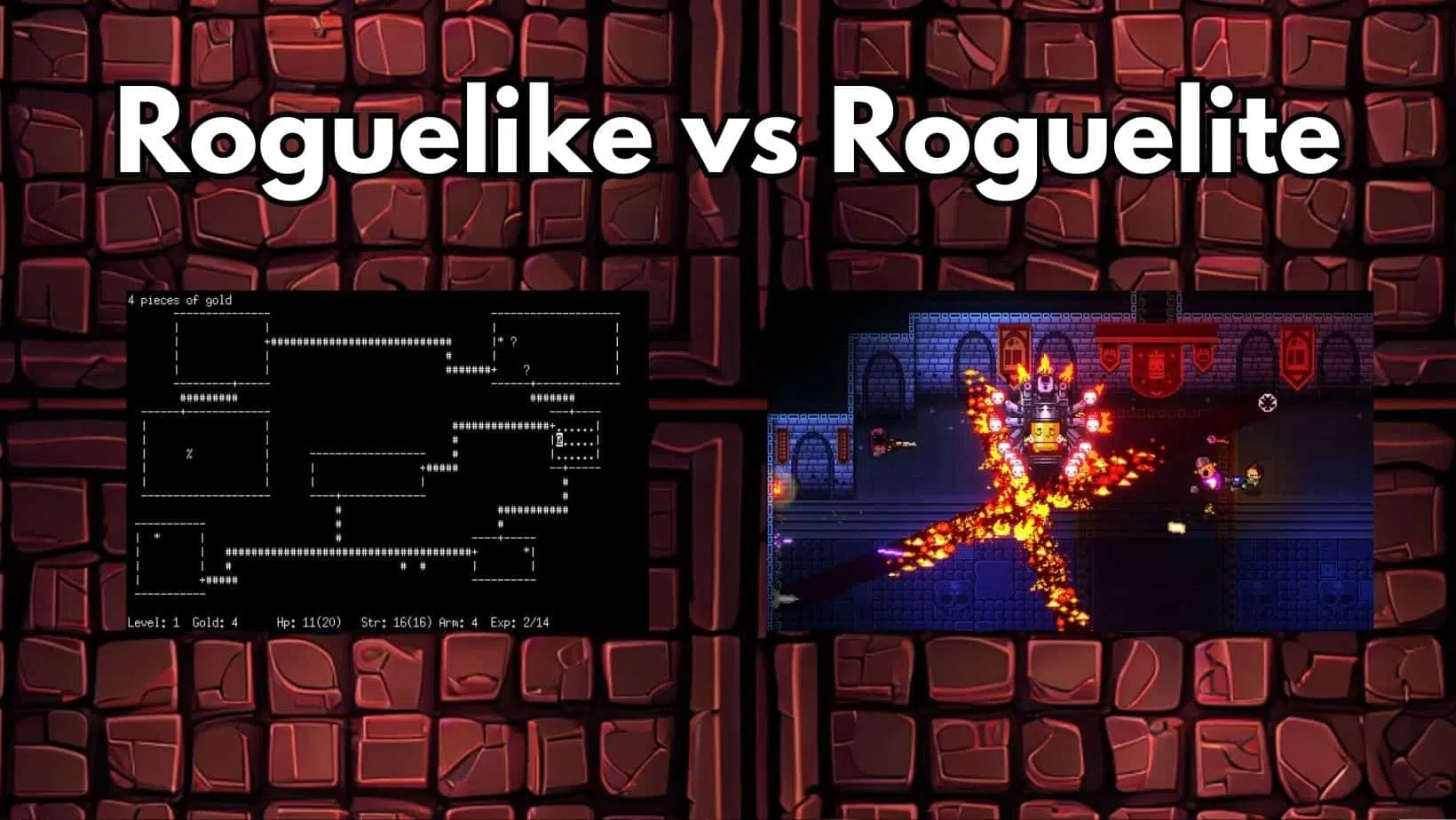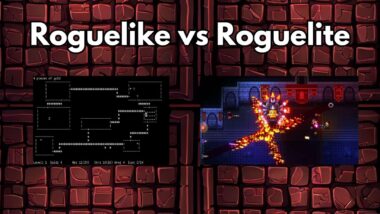Introduction
The world of roguelike and roguelite games is a treasure trove of challenge, strategy, and replayability. These two subgenres share similarities but also have distinct characteristics that set them apart. In this article, we’ll delve into the realms of roguelike and roguelite games, exploring their key differences and helping you navigate the world of perma-death gaming.

Understanding Perma-Death Gaming
Before we differentiate between roguelike and roguelite, it’s crucial to grasp the central concept they both share: permadeath. In these games, when your character dies, you lose all progress and must start over. It’s a test of skill, strategy, and adaptability.
Character Progression:
In both roguelike and roguelite games, character progression and acquiring new abilities or items are essential components.
Roguelike: A True Challenge of the Genre
Roguelike games adhere to the traditional principles of the genre, offering a challenging and often unforgiving experience.
Turn-Based Gameplay:
Roguelikes typically feature turn-based gameplay, where each action is well-considered, and strategic planning is vital.
Randomly Generated Worlds:
The game world, maps, and enemy placement are randomly generated, ensuring each playthrough is a unique experience.
Perma-Death as Core:
In roguelikes, death is a permanent end to the game. You must start from scratch, with little to no carryover from previous runs.
Examples:
Classic roguelikes include titles like Rogue, Nethack, and Dungeon Crawl Stone Soup.
Roguelite: A More Forgiving Approach
Roguelite games share elements of permadeath but take a more forgiving approach, making them accessible to a wider audience.
Real-Time Action:
Roguelites often feature real-time or action-oriented gameplay, with an emphasis on skill and reflexes.
Progression and Unlockables:
Unlike roguelikes, roguelites allow you to unlock permanent upgrades or items that carry over from one playthrough to the next.
Partial Perma-Death:
In roguelites, death may result in the loss of some progress, but key upgrades or items remain, making subsequent runs more manageable.
Examples:
Popular roguelites include games like The Binding of Isaac, Dead Cells, and Hades.
Distinguishing Factors
Here are the key distinguishing factors between roguelike and roguelite games:
Perma-Death Severity:
In roguelikes, death is absolute, while roguelites offer a more forgiving approach with partial perma-death.
Gameplay Style:
Roguelikes often feature turn-based gameplay, while roguelites lean toward real-time action.
Carryover Progression:
Roguelikes typically offer minimal or no progression carryover, while roguelites allow permanent upgrades and items.
Conclusion
The world of roguelike and roguelite games presents a challenging yet rewarding experience for players who enjoy permadeath gaming. While both subgenres share the core concept of death and starting over, they offer distinct gameplay styles, progression mechanics, and degrees of difficulty. Whether you prefer the traditional, unforgiving nature of roguelikes or the more accessible and progressive experience of roguelites, these games offer hours of thrilling gameplay and countless opportunities to test your skill and strategy. So, whether you embrace the true challenge of roguelike or appreciate the nuanced approach of roguelite, the world of perma-death gaming has something for everyone.


